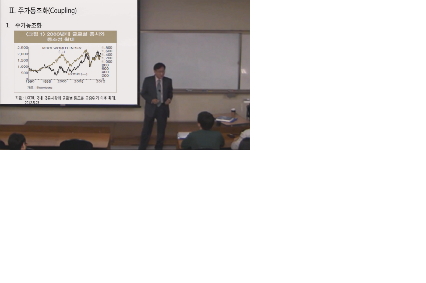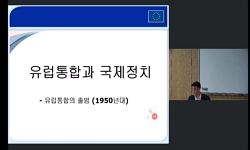9․11 테러 이후 미국의 일방 주의적 대외정책 기조에 대해 많은 지식인들이 비판하고 있고, 이러한 정책 기조가 새로운 제국의 탄생으로 이어졌다는 탄식이 있으나, 이러한 시점에서 실...
http://chineseinput.net/에서 pinyin(병음)방식으로 중국어를 변환할 수 있습니다.
변환된 중국어를 복사하여 사용하시면 됩니다.
- 中文 을 입력하시려면 zhongwen을 입력하시고 space를누르시면됩니다.
- 北京 을 입력하시려면 beijing을 입력하시고 space를 누르시면 됩니다.
https://www.riss.kr/link?id=A109350164
- 저자
- 발행기관
- 학술지명
- 권호사항
-
발행연도
2005
-
작성언어
-
-
주제어
제국주의 ; 대외정책 ; 군사적 개입 ; imperialism ; foreign policy ; military intervention
-
KDC
349
-
등재정보
KCI등재
-
자료형태
학술저널
-
수록면
5-24(20쪽)
- 제공처
-
0
상세조회 -
0
다운로드
부가정보
국문 초록 (Abstract)
9․11 테러 이후 미국의 일방 주의적 대외정책 기조에 대해 많은 지식인들이 비판하고 있고, 이러한 정책 기조가 새로운 제국의 탄생으로 이어졌다는 탄식이 있으나, 이러한 시점에서 실제로 미국의 정책기조가 어떻게 유지되어 왔는가를 역사적으로 되짚어 보는 것은 매우 의미 있는 작업으로 여겨진다. 본 논문에서는 미국의 대외정책적 행보가 어떻게 진행되어왔는가를 역사적 사실에 근거하여 접근하여 보고, 이러한 행보가 과연 제국주의적이었는가에 대해 심층적 분석을 시도하여 보았다. 연구에 의하면 미국의 대외정책 기조는 명백하게 제국주의적 속성을 가지고 지속되어 온 것으로 분석되었다. 물론, 오늘날의 미국 대외정책 기조를 과거의 식민주의에 기초한 제국주의로 바라보는 것은 커다란 오류를 가지고 있다. 그러나 미국의 대외정책 기조가 영토주의의 형태를 벗어났을지는 몰라도 민족국가의 경계를 벗어나 전세계적으로 통합되는 형태가 아니라 여전히 미국을 중심으로 비미국적인 것들과 경쟁하며 생존하기 위해 팽창하려한다는 속성을 나타낸다면 이는 전통적인 약탈적 제국주의와 크게 다르다고는 볼 수 없을 것이다.
다국어 초록 (Multilingual Abstract)
Many intellectuals criticize the reinforced unilateralism of the US foreign policy after the events of September 11, 2001, and grieve over the establishment of a new Empire. At this point, it seems very valuable to investigate, through historical retr...
Many intellectuals criticize the reinforced unilateralism of the US foreign policy after the events of September 11, 2001, and grieve over the establishment of a new Empire. At this point, it seems very valuable to investigate, through historical retrospect, how the keynote of the US foreign policy has been maintained. This study approaches the deployment of the US foreign policy on the basis of historical events, and examines profoundly whether the policy keynote has been imperialistic or not. From the analyses, I found that the past keynote of the US foreign policy has been apparently imperialistic. To be sure, the imperialistic feature of the US keynote is not based on the past colonialism or territorial expansionism. However, if the US foreign policy does not intend to accomplish an idealistic integration over the boundaries of nation states, and tries to survive by expanding its power and hostilely competing with non-American values, it could be called exploitatively imperialistic.
목차 (Table of Contents)
- Ⅰ. 서론
- Ⅱ. 제국주의 태동기로서의 초기 미국의 영토적 팽창
- Ⅲ. 신강대국의 제국주의적 발전
- Ⅳ. 냉전 시기의 제국주의적 전개
- Ⅴ. 냉전 이후의 미국 제국주의의 변화
- Ⅰ. 서론
- Ⅱ. 제국주의 태동기로서의 초기 미국의 영토적 팽창
- Ⅲ. 신강대국의 제국주의적 발전
- Ⅳ. 냉전 시기의 제국주의적 전개
- Ⅴ. 냉전 이후의 미국 제국주의의 변화
- Ⅵ. 제국주의적 정책의 전개 양태에 대한 분석
- Ⅶ. 결론
동일학술지(권/호) 다른 논문
-
The Nordpolitik as President Rho Tae Woo s New Foreign Policy, 1988-1992
- 한국세계지역학회
- 김용직(Yong-Jick Kim)
- 2005
- KCI등재
-
- 한국세계지역학회
- 박영호(Young Ho Park)
- 2005
- KCI등재
-
- 한국세계지역학회
- 황호선(Hwang Hoseon)
- 2005
- KCI등재
-
- 한국세계지역학회
- 조현석(Hyun-Suk Cho)
- 2005
- KCI등재





 KCI
KCI 스콜라
스콜라






